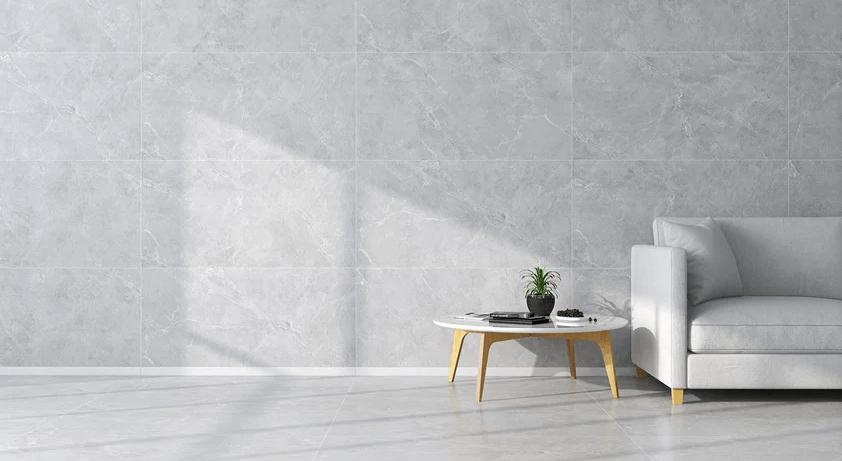
Porcelain tile is a popular choice for flooring and wall coverings due to its durability, aesthetic appeal, and low maintenance requirements.
However, like any other material, porcelain tile is not invulnerable and can be susceptible to damage if not properly cared for or exposed to certain conditions.
In this article, we will explore in detail the various factors that can damage porcelain tile and provide tips on how to protect and maintain it.
One of the primary ways porcelain tile can be damaged is through heavy impact. While porcelain tile is known for its durability, it is not indestructible.
Dropping heavy objects or tools on the tile surface can result in cracks, chips, or even shattering, depending on the force of impact.
To prevent this type of damage, exercise caution when handling heavy items in areas with porcelain tile flooring or walls.
Porcelain tile surfaces can be scratched or abraded if they come into contact with abrasive materials. This includes sand, gravel, and certain types of cleaning tools.
To minimize the risk of scratches, regularly sweep or vacuum the area to remove abrasive debris, and avoid using abrasive scrubbing pads or harsh cleaning chemicals when cleaning porcelain tile surfaces.

Porcelain tile is known for its resistance to staining, but certain substances can still leave stains if not cleaned promptly. Common culprits include red wine, coffee, ink, and oil-based substances.
To prevent stains, clean up spills immediately and use a mild detergent and warm water solution to remove stubborn stains.
Avoid using abrasive cleaners or acids, as they can damage the tile's surface glaze.
While porcelain tile is waterproof and often used in wet areas like bathrooms and kitchens, it is not immune to water damage. The grout lines between the tiles are particularly susceptible to moisture penetration.
Over time, water can seep into the grout, causing it to deteriorate and potentially lead to tile displacement or cracking. To prevent water damage, ensure that grout lines are properly sealed and maintained. Reapply grout sealant as needed.
Extreme temperature fluctuations can affect porcelain tile, particularly in outdoor applications. In freezing temperatures, water trapped within the tile or grout can expand, leading to cracks or breakage.
Similarly, in high-heat environments, the tile can expand, causing warping or buckling. To mitigate temperature-related damage, choose porcelain tiles rated for outdoor use and install them with proper expansion joints to accommodate temperature changes.
Improper installation can be a significant factor in porcelain tile damage. When tiles are not installed correctly, they may not be level, leading to tripping hazards or uneven surfaces.
Additionally, inadequate adhesive or grout application can result in tiles becoming loose or dislodged over time. To ensure proper installation, it's advisable to hire experienced professionals who follow industry best practices.

Furniture with sharp or heavy legs can damage porcelain tile surfaces over time. The weight of the furniture can cause tile compression, potentially leading to cracks or breakage.
To protect your porcelain tile flooring, use furniture pads or coasters under the legs of heavy items. Periodically lift and move furniture when cleaning to prevent tile compression.
Certain chemicals, such as those found in strong acids or alkalis, can damage the glaze on porcelain tile.
Avoid using harsh chemicals when cleaning porcelain tile surfaces, as they can lead to discoloration and surface degradation.
Instead, opt for pH-neutral or porcelain-specific tile cleaners to maintain the tile's appearance and integrity.
Grout is an integral part of a porcelain tile installation, and problems with grout can lead to tile damage. Grout that becomes cracked, discolored, or degraded can compromise the stability and appearance of the tile surface. Regularly inspect grout lines for signs of wear and tear and address any issues promptly through regrouting or sealing.
Porcelain tile is a resilient and versatile material, but it is not impervious to damage. To maintain the beauty and longevity of porcelain tile surfaces, it's essential to be aware of potential threats and take preventive measures.
Regular maintenance, careful cleaning, and professional installation will contribute to the longevity and aesthetic appeal of your porcelain tile surfaces, making them a wise and durable choice for your home or commercial space.